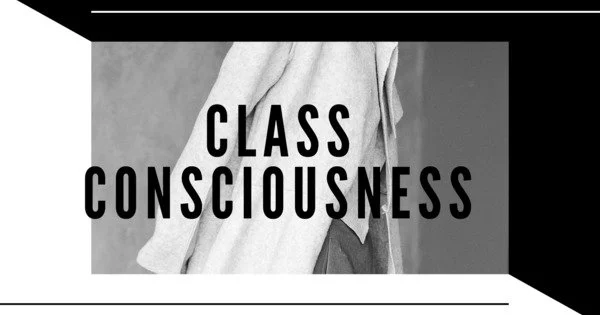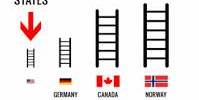Class consciousness, according to Marxism, is the set of beliefs that a person has about their social class or economic rank in society, the structure of their class, and their class interests. It is an important concept in Marxist theory, especially in understanding the dynamics of class struggle and the potential for revolutionary change. According to Karl Marx, awareness is essential for igniting a revolution that will “create a dictatorship of the proletariat, transforming it from a wage-earning, property-less mass into the ruling class.”
Marx classified society into different social classes based on their relationship to the means of production. The ruling class, or bourgeoisie, owns and controls the means of production (such as factories, land, and capital) and exploits the labour of the proletariat, or working class, who sell their labour power for a wage. The ruling class’s and working class’s interests are fundamentally opposed, resulting in conflicts and contradictions within capitalist society.
Marx, on the other hand, argued that the working class has the ability to overcome these contradictions and overthrow the ruling class through revolution. To accomplish this, the working class must cultivate class consciousness. Class consciousness entails a collective understanding of the structural oppression and exploitation inherent in the capitalist system, which goes beyond individual awareness of one’s social class. It entails acknowledging that individuals’ problems are not isolated personal issues, but are rooted in class-based social relations and the larger economic system.
Class consciousness emerges through a variety of processes, including collective exploitation, shared struggles, and the spread of Marxist ideas and theories. Marx believed that as class consciousness grew, the proletariat would band together and organise collectively to challenge and eventually overthrow the bourgeoisie, establishing a classless society.
Marxist theory differentiates between false and true class consciousness. False consciousness describes a situation in which working-class people are unaware of or misunderstand their own class interests. This can be attributed to the ruling class’s ideological manipulation, cultural hegemony, or a lack of revolutionary education and organisation. True class consciousness, on the other hand, represents a clear understanding of the class struggle, capitalism’s exploitative nature, and the necessity of revolutionary action to achieve social change.
Marxists argue that the development of class consciousness is not a spontaneous process but requires political education, organization, and the formation of revolutionary parties or movements. Through these means, the working class can become conscious of their collective power and engage in class struggle to challenge the existing social order.
















